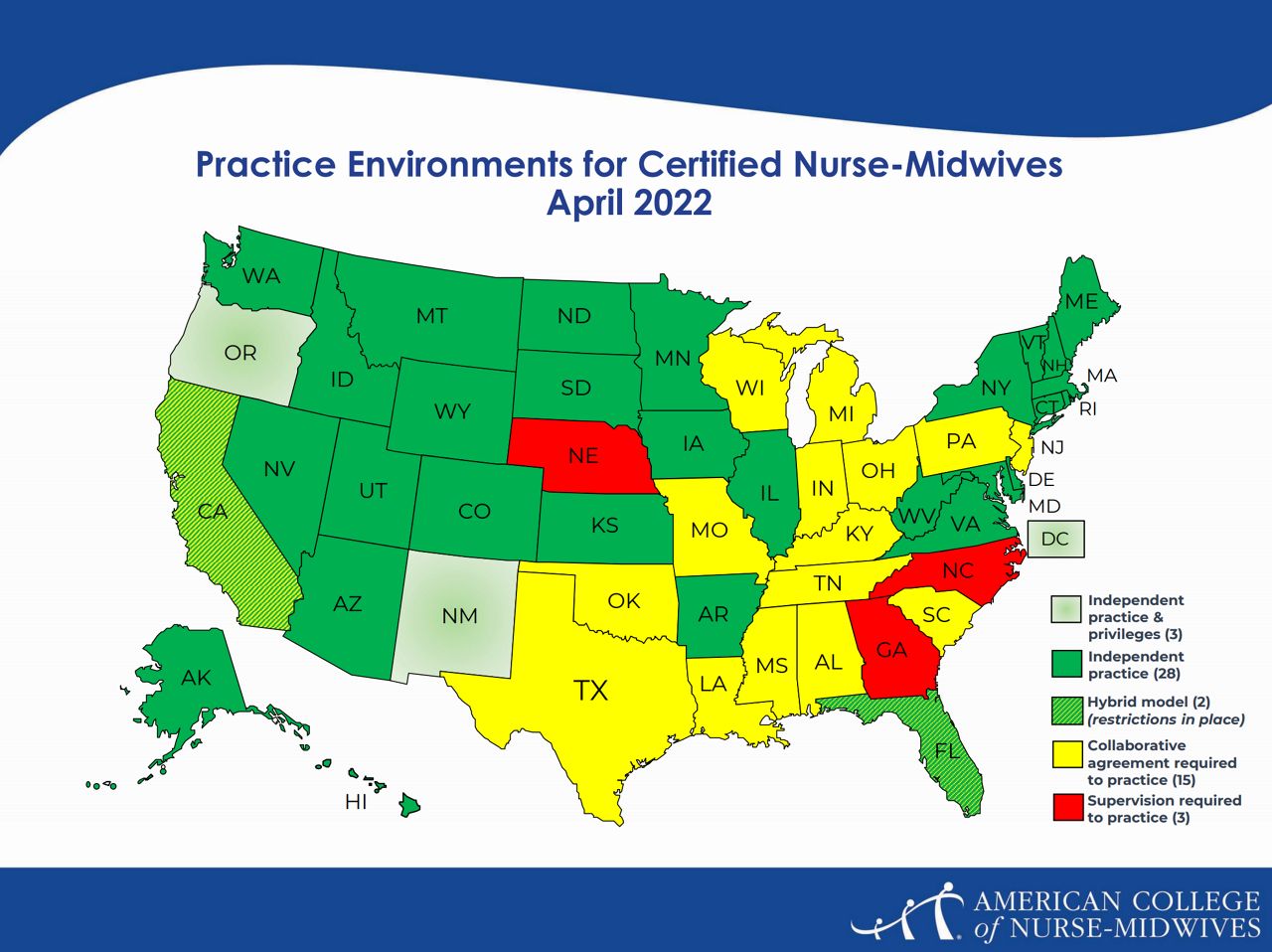ALAMANCE COUNTY, N.C. — The same bill set to change North Carolina abortion laws on July 1 is also removing a requirement for midwives in the state. According to the American College of Nurse-Midwives, North Carolina is one of only three states that still requires a certified nurse-midwife (CNM) to be supervised by a physician.
On October 1, North Carolina will no longer require certified nurse-midwives to practice under the supervision of a physician. It’s a requirement that some in the industry say is an extra and unnecessary step.
“There is something very beautiful about birth, and there's something very beautiful about empowering women to birth their way,” said Adiah Oyefesobi, a certified nurse-midwife and the owner of Special Beginnings Midwifery. “We serve women in a variety of ways and in a variety of settings, both in and out of the hospital. We offer prenatal care, birth, so we deliver babies, postpartum care and limited newborn care for a healthy baby.”
Oyefesobi says, beyond training and education, North Carolina also requires midwives be supervised by a physician. In her 15 years of experience, she says that requirement hasn’t been as involved as it might sound.
“I haven't really met or seen my supervising physician. It's paperwork. It's a document that's signed, and it's filed with the Board of Nursing that allows us to practice, whether it's used or not, not typically, not in my practice. I've never really used that requirement or had a need for it,” Oyefesobi said.

Starting in October, midwives will need a collaborative provider agreement only if they have fewer than 24 months and 4,000 hours of practice.
“With eliminating this extra step, we're going to be able to open and increase access to midwives,” Oyefesobi said.
Oyefesobi says this could attract more midwives to work in the state and in turn allow more people to benefit from the services she says midwifery offers.
“Which often increases breastfeeding rates, it decreases preterm birth. It decreases caesarean section rates and increases the positive outcomes of birth and satisfaction in the birthing experience for a woman,” Oyefesobi said.
Oyefesobi says this change is a good start, but she’d also like to see more equitable reimbursement for midwifery services. Depending on the insurance company, midwifery services aren’t completely covered. Oyefesobi also says her current practice isn’t sustainable for people with Medicaid because of their reimbursement rates.
According to the American Midwifery Certification Board, as of February 2023, North Carolina had more than 500 certified nurse-midwives and certified midwives in the state.






